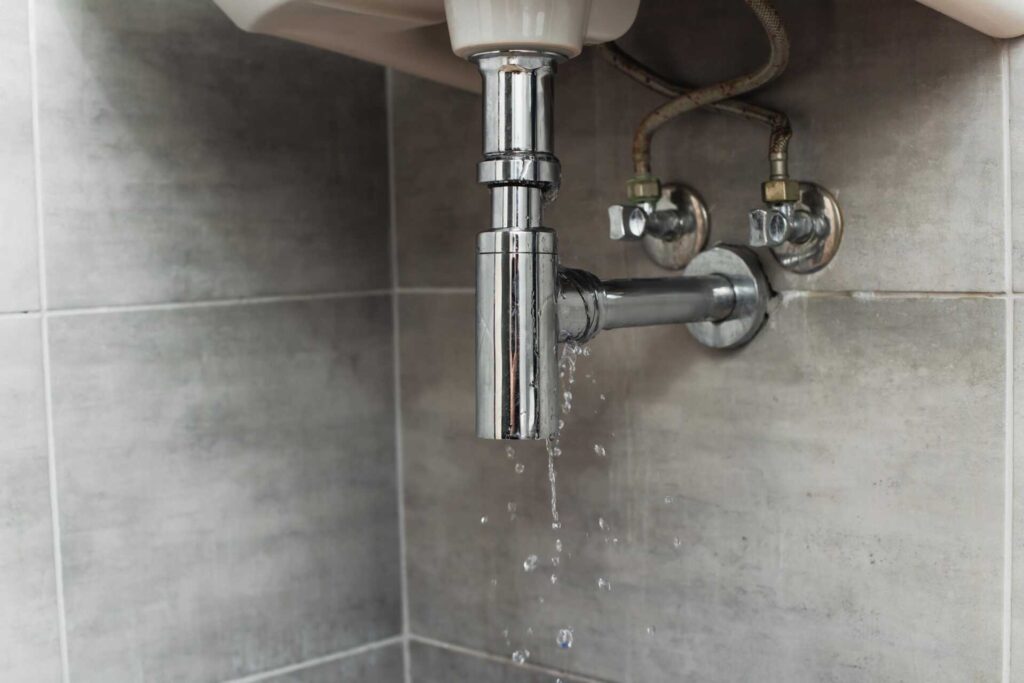
Contents
When it comes to water leak detection, did you know that cutting-edge technology has revolutionized the way leaks are identified and managed? The integration of advanced IoT sensors, real-time monitoring systems, and machine learning algorithms has paved the way for proactive solutions in detecting and responding to water leaks. By harnessing the power of artificial intelligence and remote monitoring capabilities, these innovative technologies offer a glimpse into the future of water management. Stay tuned to discover how these systems are reshaping the landscape of leak detection and prevention.
Key Takeaways
- Integration of Advanced IoT Sensors for real-time monitoring of water flow and pressure.
- Implementation of Machine Learning Algorithms for predictive analysis of potential leak locations.
- Utilization of Artificial Intelligence for proactive maintenance and optimized leak detection systems.
- Remote Monitoring Capabilities for swift identification of leaks and proactive maintenance.
- Innovative Wireless Leak Detection Devices for continuous real-time monitoring and immediate intervention.
Advanced IoT Sensors
Advanced IoT sensors play an essential role in modern water leak detection technology. By integrating these smart sensor networks into water systems, businesses and homeowners can now leverage predictive maintenance strategies to prevent costly water damage. These sensors are equipped with cutting-edge technology that enables them to monitor water flow, pressure, temperature, and humidity levels in real-time.
The implementation of smart sensor networks allows for the continuous monitoring of water pipelines and infrastructure. By collecting and analyzing data from these sensors, predictive maintenance algorithms can detect potential leaks before they escalate into major issues. This proactive approach not only saves time and resources but also minimizes the risk of extensive water damage.
Moreover, advanced IoT sensors enable remote monitoring capabilities, providing users with instant access to critical data through cloud-based platforms. This real-time visibility allows for quick decision-making and swift responses to any detected anomalies in the water system.
Real-time Monitoring Systems
Real-time Monitoring Systems in water leak detection technology offer instant alert notifications, ensuring prompt responses to potential leaks.
These systems provide continuous data tracking, allowing for the analysis of patterns and trends to prevent future incidents.
With remote monitoring capabilities, you can oversee your water systems from anywhere, enhancing efficiency and proactive maintenance.
Instant Alert Notifications
Deploying sophisticated sensors and cutting-edge algorithms, water leak detection technology has evolved to offer instant alert notifications through real-time monitoring systems. This advancement enables proactive leak detection and rapid response strategies, minimizing environmental impact and optimizing maintenance scheduling.
The user-friendly interfaces and mobile applications enhance user engagement and facilitate timely actions.
Real-time Alerts: Receive immediate notifications on your mobile device or computer when a leak is detected.
Customizable Alert Mechanisms: Tailor alerts based on severity levels or specific areas of concern.
Integration with Response Strategies: Seamlessly connect alert notifications to predefined response protocols for efficient action.
Enhanced User Engagement: Engage with the system through interactive dashboards and intuitive interfaces for better monitoring and control.
These instant alert notifications provide an essential layer of protection, ensuring that leaks are swiftly identified and addressed, ultimately saving resources and preventing potential water damage.
Continuous Data Tracking
Utilizing state-of-the-art sensors and advanced algorithms, water leak detection technology incorporates continuous data tracking through real-time monitoring systems.
These systems enable precise data analysis, allowing for the early detection of potential leaks and anomalies in water usage patterns. By continuously monitoring water flow rates, pressure levels, and temperature variations, predictive maintenance strategies can be implemented to prevent costly damages associated with water leaks.
Real-time monitoring systems provide a wealth of data that can be analyzed to identify trends and patterns indicative of leak development.
Through sophisticated algorithms, these systems can predict potential issues before they escalate, facilitating proactive maintenance measures. Data analysis plays an essential role in both detecting leaks and optimizing water usage efficiency while reducing operational costs.
Remote Monitoring Capabilities
Remote monitoring capabilities enhance the efficiency and effectiveness of water leak detection technology by enabling continuous oversight of water systems. This real-time monitoring system provides valuable insights and actionable data for preventive maintenance strategies.
Here’s how it works:
Remote Diagnostics: Utilizing sensors and IoT technology, remote monitoring systems can detect anomalies in water flow patterns, pressure levels, and usage data in real-time.
Proactive Maintenance: By analyzing the data collected through remote monitoring, maintenance teams can proactively identify potential issues before they escalate into costly leaks or damages.
Instant Alerts: Remote monitoring systems can send immediate alerts to designated personnel when unusual water usage or pressure fluctuations are detected, enabling swift response and mitigation actions.
Data Analysis: The continuous stream of data collected by remote monitoring systems can be analyzed to identify trends, patterns, and potential areas for optimization in the water distribution system.
Incorporating remote monitoring capabilities into water leak detection technology equips organizations with the tools needed for proactive maintenance and swift intervention, ultimately minimizing water loss and infrastructure damage.
Artificial Intelligence Integration
To enhance the efficiency and accuracy of water leak detection systems, integrating artificial intelligence is vital.
Artificial intelligence (AI) plays a significant role in revolutionizing water leak detection by enabling predictive maintenance and leveraging advanced data analytics techniques.
By incorporating AI algorithms into leak detection systems, you can move from reactive to proactive maintenance strategies. Predictive maintenance, made possible through AI integration, allows for the prediction of potential leaks before they occur. This proactive approach minimizes the risk of water damage and reduces maintenance costs in the long run.
Furthermore, AI enables the analysis of vast amounts of data collected by water leak detection systems. Through sophisticated data analytics, AI can identify patterns, anomalies, and trends that would be challenging for traditional systems to detect. This in-depth analysis enhances the accuracy of leak detection, leading to quicker identification and resolution of leaks.
With AI integration, water utilities and property owners can benefit from real-time monitoring, early leak detection, and optimized maintenance schedules.
The synergy between AI, predictive maintenance, and data analytics propels water leak detection systems into a new era of efficiency and effectiveness.
Wireless Leak Detection Devices
Integration of wireless leak detection devices represents a pivotal advancement in modern water management systems. These devices utilize ultrasonic leak detection technology to enhance pipe integrity assessment, enabling proactive maintenance and minimizing water loss.
Here are key features of wireless leak detection devices:
Real-time Monitoring: Wireless devices provide continuous monitoring of your water system, detecting leaks as soon as they occur, allowing for immediate intervention.
Data Analytics: These devices collect and analyze data on water flow rates, pressure changes, and temperature differentials, providing valuable insights for optimizing water usage and preventing potential leaks.
Remote Access: With wireless connectivity, you can access real-time data and alerts from anywhere, facilitating quick decision-making and response to leak incidents.
Scalability: Wireless systems can be easily expanded to cover larger areas or accommodate additional sensors, ensuring thorough coverage of your water infrastructure.
Remote Leak Detection Technology
Remote Leak Detection Technology offers real-time leak alerts and automated sensor monitoring, providing immediate notifications when water leaks are detected.
This advanced system allows for swift responses to potential water damage, minimizing the risk of extensive property damage or financial loss.
Real-Time Leak Alerts
Using cutting-edge technology, water leak detection systems now offer real-time leak alerts to provide immediate notification of potential leaks in your water system.
These alerts are essential in preventing water wastage and potential damage to your property.
Here’s how real-time leak alerts can benefit you:
Instant Notification: Receive alerts as soon as a leak is detected, allowing for prompt action to be taken.
Remote Monitoring: Access leak alerts from anywhere using a smartphone or computer, providing you with real-time updates on your water system.
Data Analysis: Receive detailed data on the location and severity of the leak, enabling you to make informed decisions on necessary repairs.
Customization: Set up alerts based on your preferences, such as specific times or thresholds, ensuring you receive notifications tailored to your needs.
Automated Sensor Monitoring
Water leak detection technology has evolved to incorporate Automated Sensor Monitoring, a sophisticated system that enables remote leak detection capabilities. This technology relies on sensors strategically placed throughout a water system to continuously monitor for any abnormalities in flow rates or pressure.
Automated Sensor Monitoring operates by collecting real-time data from these sensors, which is then analyzed to detect potential leaks. To guarantee accuracy, regular sensor calibration is essential to maintain peak performance.
One of the key advantages of Automated Sensor Monitoring is its ability to provide remote leak detection, allowing for timely response and mitigation of water loss.
In addition, this technology prioritizes data privacy by implementing secure communication protocols and encryption methods to safeguard sensitive information collected from the sensors.
Machine Learning Algorithms
Utilizing advanced machine learning algorithms is essential in the field of water leak detection technology. Machine learning algorithms have revolutionized how leaks are detected and prevented in various settings. Here’s how they work:
Predictive Analysis: Machine learning algorithms can analyze historical data to predict potential water leak locations or occurrences. By identifying patterns and trends in the data, these algorithms can forecast where leaks might occur, allowing for proactive measures to be taken.
Anomaly Detection: Machine learning algorithms excel at detecting anomalies in water usage patterns that could indicate a potential leak. By continuously monitoring data from sensors and meters, these algorithms can quickly flag any irregularities that may signify a leak, enabling swift action to be taken.
Continuous Learning: One of the key advantages of machine learning algorithms is their ability to adapt and improve over time. By continuously learning from new data inputs and outcomes, these algorithms can enhance their accuracy in detecting leaks and minimizing false alarms.
Real-time Monitoring: Machine learning algorithms enable real-time monitoring of water systems, providing instant alerts when potential leaks are detected. This real-time capability allows for immediate responses to mitigate water loss and damages caused by leaks.
Incorporating machine learning algorithms into water leak detection systems enhances efficiency, accuracy, and overall effectiveness in safeguarding water resources and infrastructure.
Smart Water Meter Solutions
Smart Water Meter Solutions play a pivotal role in modern water management systems, offering a proactive approach to monitoring and optimizing water usage. Leveraging smart analytics, these advanced meters provide real-time data on water consumption, enabling users to identify patterns, detect anomalies, and make informed decisions to conserve water efficiently.
By incorporating predictive maintenance capabilities, Smart Water Meter Solutions can anticipate potential leaks or malfunctions before they escalate, minimizing water wastage and reducing repair costs. These meters use algorithms to analyze historical usage data, predict future consumption trends, and alert users to any irregularities that may indicate a leak or inefficiency in the system.
With the ability to track water usage at a granular level, Smart Water Meter Solutions empower users to set consumption targets, receive customized notifications, and gain insights into their water usage patterns.
This data-driven approach not only encourages water conservation but also enhances overall water management practices.
Wrap-Up
You can benefit from cutting-edge technology for water leak detection by utilizing advanced IoT sensors, real-time monitoring systems, and machine learning algorithms. While initial costs may be a concern, the long-term savings and efficiency gains far outweigh any investment. With proactive leak detection and instant alerts, you can prevent costly damages, conserve valuable water resources, and optimize your overall water management strategy. Embrace this innovative technology to stay ahead in the game.
Recent Posts
Mastering Biohazard Sewage Cleanup Techniques
Is it really worth the risk to tackle biohazard sewage cleanup without the right techniques?
Top Leak Detection Services for Homeowners
Is it true that most homeowners underestimate the impact of undetected leaks? You might think
What Are Effective Sewage Cleanup Solutions?
You might not realize that improper sewage cleanup can lead to long-term health risks and

